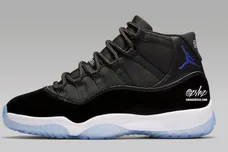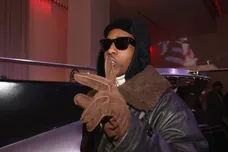Author's Note: The article was originally written prior to DMX's clarification that he confused Lloyd Banks and Tony Yayo.
It’s difficult to imagine what prompted DMX to discredit Lloyd Banks in such a public fashion. Considering that the G-Unit rapper has been widely recognized as The Punchline King, it’s fair to assume that his bars have left an impression. Many are quick to cite early cuts like “That’s What’s Up” and his breakout “Victory Freestyle” as a testament to his lyrical prowess. With the bulk of his reputation having been cultivated on the mixtape circuit, which in itself encourages bars over structure and substance alike, it was initially difficult to assess Banks’ potential as a solo artist. Yet that changed with the release of his debut album The Hunger For More, an album that boasted classics like “On Fire,” “Warrior Part 2,” and arguably the greatest track of Lloyd Banks’ career in “Till The End.”
Though high caliber punchlines were expected on a Banks LP, “Till The End” unearthed additional depth in the young emcee. That of a storyteller, capable of conjuring striking images and emotional impact, never once diluted by an expansive three verse structure. A far cry from his mixtape material in subject matter, Banks retains his clever vernacular and imaginative control over language. “Nobody dead knew they would die before they woke, they probably started off a beautiful day with weed smoke,” he raps, opening the haunting reflection on a bleak note. “Out of last night's pussy, the murder that she wrote, cold sweating from a nightmare, mind on a C-note.” Themes not unfamiliar to rap fans, the perils of a young hustler’s dangerous lifestyle; mirrored in many ways by mafioso rap, Banks understands how disloyalty speeds up the inevitability of death.
Dave Kotinsky/Getty Image
Paranoia is another major theme in “Till The End,” and Banks’s second verse slowly expands the narrative to reveal some of his grievances. Like many young self-made men, Banks moves with a chip on his shoulder, both inspired and frustrated by his doubters. It’s a timeless reflection of the street cycle. Even those closest friends can fall prey to the trappings of jealousy and envy under the right circumstances. Given the track’s ominous opening -- that of a violent drive-by shooting -- there’s a constant sense of tension permeating throughout. It’s a testament to Banks’ ability to become one with an instrumental, his morose retrospection fueled by Eminem’s haunting lullaby. “The confusion of jealousy and dishonor will spin ya,” he warns. “But then nothing hurt worse than when that gunpowder's in ya.” It’s something he himself grapples with, taking solace in achieving victory with those he deems kin.
Yet perhaps the damage has already been done, leaving behind unhealable scars. Even though Nate Dogg’s chorus is a comforting presence, it’s hard to shake the nightmarish foreshadowing of the opening moments. It’s not clear when death is coming for Banks, but rest assured that he knows it’s coming. And sadly, as he knows all too well, the ending is often bloody. Especially for a man who continues to carry his principles forward. “Keep my, mind on my money, and my head to the sky, I never really smile much, if you was here you'd know why,” he confesses. “There's frustration and fire if you look in my eye.” Even amidst success, it’s difficult to discern whether Banks is even willing to accept happiness. Though he proceeds to rattle off many of his personal accomplishments, be it achieving desirability as a bachelor or commercial success as a rapper, he still cannot bring himself to smile.
Inevitably remains one of the driving themes of “Til The End.” It hangs over Banks like a guillotine blade. The fact that success is only a pitstop on the overall road, a road that is not straight, but rather circular in nature. For him, it begins and ends in the hood -- the place that built him up as a man only to plant the seeds for his eventual downfall. Perhaps, as complex as it may seem, there’s a strange sense of comfort in knowing that. It would explain why Banks opted for such a tranquil instrumental, one that might otherwise evoke feelings of peace. The song packs even more impact knowing what transpired within G-Unit, a group torn apart from within, not unlike the topics explored in his lyrics. The authenticity with which Banks renders this range of themes, his cadence equally weary and wistful, makes “Till The End” stand as one of his crowning artistic achievements.









